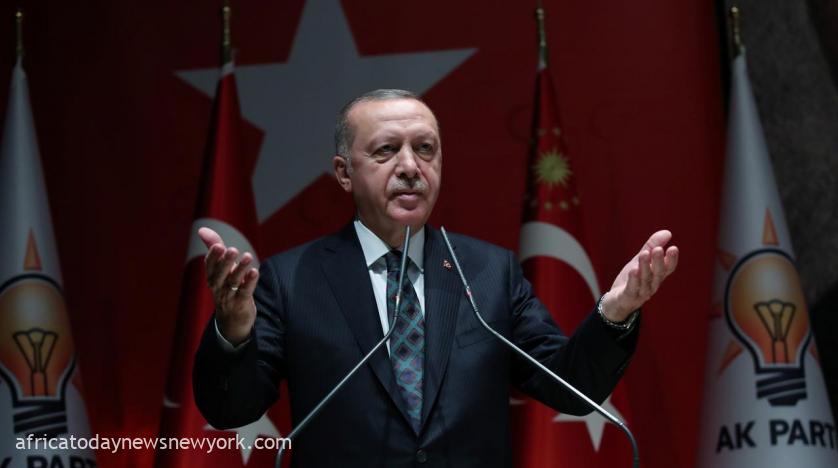Turkey’s President Recep Tayyip Erdogan has announced that Turkish intelligence forces on Sunday killed the suspected leader of the ISIL (ISIS) group, Abu al-Hussein al-Husseini al-Qurashi.
Erdogan said Turkish intelligence had been monitoring the alleged leader of the hardline group for a long time before launching their operation.
“This individual was neutralised as part of an operation by the Turkish national intelligence organisation in Syria yesterday,” Erdogan said in an interview with TRT Turk broadcaster on Sunday.
“We will continue our struggle with terrorist organisations without any discrimination,” the president added.Syrian local and security sources said the raid took place near the northern Syrian town of Jinderes, which is controlled by Turkey-backed rebel groups and was among the worst-affected areas in the February 6 earthquake that hit both Turkey and Syria.
Read Also: Erdogan Denies Playing A Role In Istanbul Mayor’s Conviction
There was no announcement from ISIL (ISIS). The Syrian National Army, an opposition faction with a security presence in the area, did not immediately issue any comment.
A correspondent from the AFP news agency in northern Syria said Turkish intelligence agents and local military police, backed by Turkey, had sealed off a zone in Jindires on Saturday.
Residents told AFP that an operation had targeted an abandoned farm that was being used as an Islamic school.
One resident told the Reuters news agency that clashes started on the edge of the town overnight from Saturday into Sunday, lasting for about an hour before residents heard a large explosion.
The area was later encircled by security forces to prevent anyone from approaching.
Al-Qurashi became ISIL (ISIS) leader in November 2022 after his predecessor was killed.
The ISIL (ISIS) group took over vast swathes of Iraq and Syria in 2014, and its head at the time, Abu Bakr al-Baghdadi, declared an Islamic caliphate across an area that was home to millions of people.
But the group lost its grip on the territory after campaigns by US-backed forces in Syria and Iraq, as well as Syrian forces backed by Iran, Russia and various paramilitaries.
Its remaining fighters are now mostly hiding in remote areas of Syria and Iraq, and still launch attacks from time to time.

